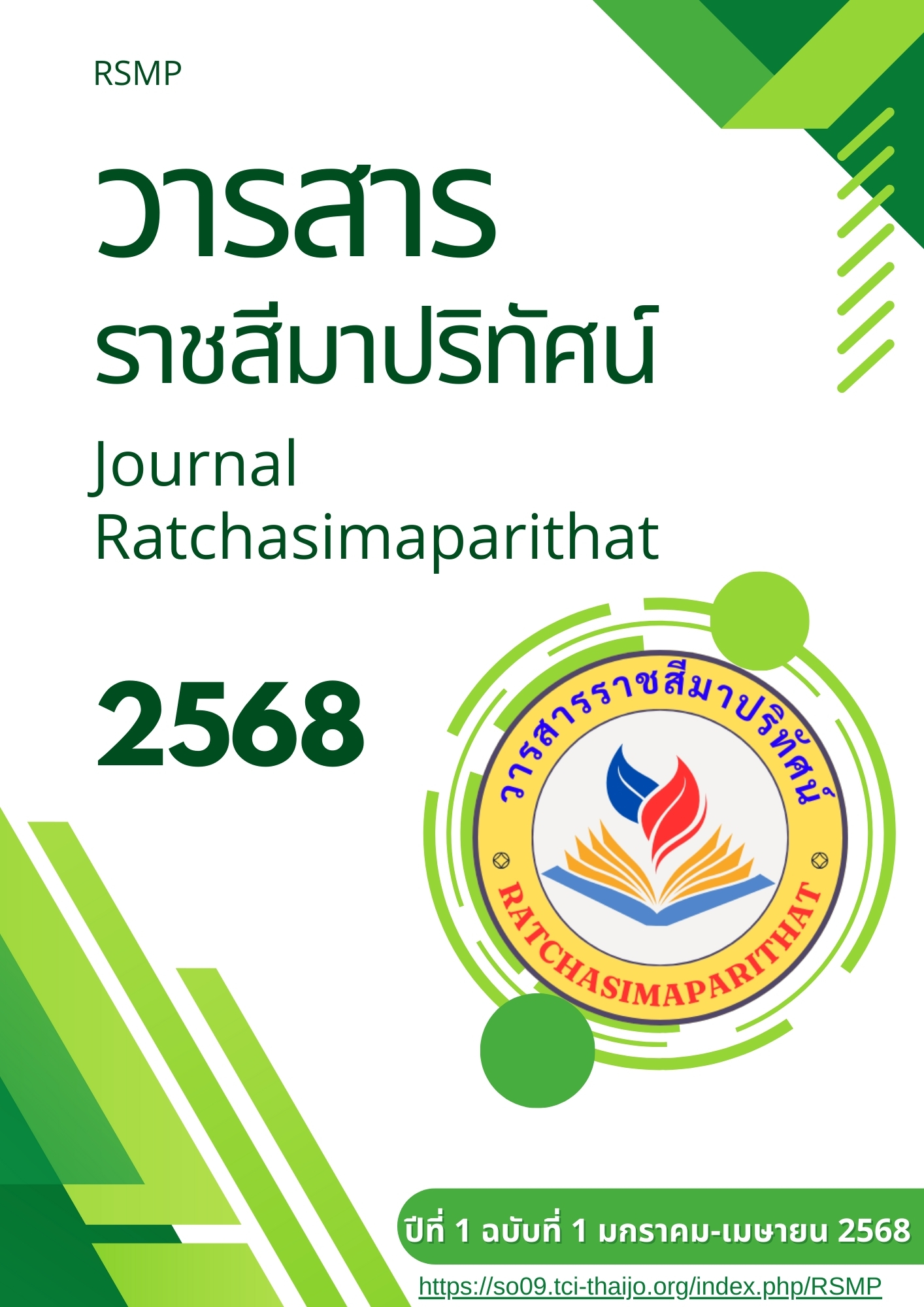เทคโนโลยีดิจิทัลกับการศึกษาของพระสงฆ์
คำสำคัญ:
การศึกษาออนไลน์, เทคโนโลยีดิจิทัล, พระสงฆ์บทคัดย่อ
บทความนี้วิเคราะห์ปัญหาและผลกระทบของภาระงานที่นอกเหนือจากการสอนต่อคุณภาพการศึกษาการมีภาระงานที่นอกเหนือจากการสอน เมื่อครูต้องใช้เวลามากไปกับงานที่ไม่เกี่ยวข้องกับการสอน สิ่งนี้ทำให้ครูไม่มีเวลาเตรียมการสอนและติดตามผลการเรียนรู้ของผู้เรียนอย่างละเอียด ส่งผลให้ประสิทธิภาพการเรียนการสอนลดลง และผู้เรียนอาจไม่ได้รับการพัฒนาเต็มศักยภาพครูมีบทบาทสำคัญในการพัฒนาคุณภาพการศึกษา ทั้งในการถ่ายทอดความรู้และพัฒนาทักษะที่จำเป็นของผู้เรียน และการใช้เทคโนโลยีเป็นเครื่องมือในการเรียนการสอน เป็นสิ่งสำคัญเพื่อส่งเสริมการเรียนรู้ที่ยั่งยืนและสามารถปรับตัวได้ ครูต้องพัฒนาทักษะการจัดการเรียนรู้ที่ตอบสนองความหลากหลายของผู้เรียน และส่งเสริมทักษะการคิดวิเคราะห์และการสื่อสาร ในขณะเดียวกัน ครูยังต้องเผชิญกับภาระงานที่ไม่เกี่ยวข้องกับการสอน เช่น การจัดทำเอกสารและการประสานงาน ซึ่งส่งผลให้ครูมีเวลาน้อยในการเตรียมการสอนและดูแลนักเรียนอย่างเต็มที่ ทำให้คุณภาพการสอนและการพัฒนาผู้เรียนลดลง งานวิจัยพบว่า ภาระงานที่มากเกินไปเพิ่มความเครียดและเหนื่อยล้าให้กับครู ซึ่งทำให้ไม่สามารถมุ่งมั่นในการสอนได้อย่างเต็มที่ การลดภาระงานที่ไม่เกี่ยวข้องกับการสอนและการสนับสนุนครูในการทำงานอื่นๆ จึงเป็นวิธีที่สำคัญในการเพิ่มประสิทธิภาพการสอนและพัฒนาคุณภาพการศึกษา การใช้เทคโนโลยีและการปรับโครงสร้างงานในสถานศึกษาเป็นแนวทางที่มีประสิทธิภาพในการลดภาระงานและคืนครูสู่ห้องเรียน ทำให้ครูสามารถมุ่งเน้นการพัฒนาผู้เรียนได้มากขึ้น ซึ่งจะส่งผลต่อการพัฒนาคุณภาพการศึกษาในระยะยาว
เอกสารอ้างอิง
พระพรหมคุณาภรณ์ (2553). พระไตรปิฎกและการศึกษาของพระสงฆ์. มหาวิทยาลัยมหาจุฬาลงกรณราชวิทยาลัย.
พุทธทาสภิกขุ. (2533). การศึกษาและการฝึกฝนพระธรรมวินัย. ธรรมสภา.
มหาเถรสมาคม. (2563). หลักสูตรการศึกษาพระสงฆ์ไทย (ฉบับปรับปรุง). มหาเถรสมาคม.
ศิริวัฒน์ มณีธรรม (2562). การใช้เทคโนโลยีดิจิทัลในการศึกษาของพระสงฆ์ไทย: แนวทางและอุปสรรค. วารสารการศึกษาไทย, 22(3), 112-128.
สุเทพ วงศ์ศรีวรรณ (2564). การศึกษาดิจิทัลและการเผยแผ่พระพุทธศาสนาในยุคดิจิทัล: โอกาสและความท้าทาย. มหาวิทยาลัยมหาจุฬาลงกรณราชวิทยาลัย.
สุมินทร์ กุลสุนทร. (2564). การใช้เทคโนโลยีดิจิทัลในการศึกษาของพระสงฆ์. มหาวิทยาลัยมหาจุฬาลงกรณราชวิทยาลัย.
Anderson, T. (2008). The theory and practice of online learning. AU Press.
Anderson, T. (2008). The theory and practice of online learning. Athabasca University Press.
Bandura, A. (1977). Social learning theory. Prentice-Hall.
Bhikkhu Bodhi. (2013). The numerical discourses of the Buddha: A translation of the Anguttara Nikaya. Wisdom Publications.
Brynjolfsson, E., & McAfee, A. (2014). The second machine age: Work, progress, and prosperity in a time of brilliant technologies. W. W. Norton & Company.
Garrison, D. R., & Anderson, T. (2003). E-learning in the 21st century: A framework for research and practice. Routledge.
Gombrich, R. F. (1996). Theravada Buddhism: A social history from early times to the present. Routledge.
Holmes, D., et al. (2019). Artificial intelligence and Buddhism: A review of recent developments and perspectives. Buddhist Studies Review, 36(1), 45-63.
Holmes, W., Bialik, M., & Fadel, C. (2019). AI in education: Promises and implications for teaching and learning. Center for Curriculum Redesign.
Hughes, J., & Burke, D. (2014). Digital literacy and the role of the internet in Buddhist education. Journal of Buddhist Education, 3(1), 45-60.
Kukulska-Hulme, A. (2012). Mobile learning: A handbook for educators and trainers. Routledge.
Laurillard, D. (2012). Teaching as a design science: Building pedagogical patterns for learning and technology. Routledge.
Manca, S., & Ranieri, M. (2016). Is social media still “doing good for society”? A review of the latest research on social media, education, and technology. Educational Media International, 53(2), 94-110.
Piaget, J. (1950). The psychology of intelligence. Routledge.
Roth, W. (2006). Digital technology and education: The challenges for Buddhist monastic institutions. Journal of Religious Education, 52(1), 77-90.
Selwyn, N. (2016). Education and technology: Key issues and debates. Bloomsbury Academic.
Siemens, G. (2005). Connectivism: A learning theory for the digital age. International Journal of Instructional Technology and Distance Learning, 2(1), 3-10.
Sumanasiri, T. (2020). The ethical and cultural challenges of using digital technology in the dissemination of Buddhist teachings. Journal of Buddhist Studies, 42(3), 123-140.
Sweller, J. (1988). Cognitive load during problem solving: Effects on learning. Cognitive Science, 12(2), 257-285.
Vygotsky, L. S. (1978). Mind in society: The development of higher psychological processes. Harvard University Press.
Warschauer, M. (2004). Technology and social inclusion: Rethinking the digital divide. MIT Press.
Wong, T. (2020). Challenges in adopting digital technology in Thai Buddhist education. International Journal of Educational Technology, 18(4), 67-84.

ดาวน์โหลด
เผยแพร่แล้ว
รูปแบบการอ้างอิง
ฉบับ
ประเภทบทความ
สัญญาอนุญาต
ลิขสิทธิ์ (c) 2025 ราชสีมาปริทัศน์

อนุญาตภายใต้เงื่อนไข Creative Commons Attribution-NonCommercial-NoDerivatives 4.0 International License.






